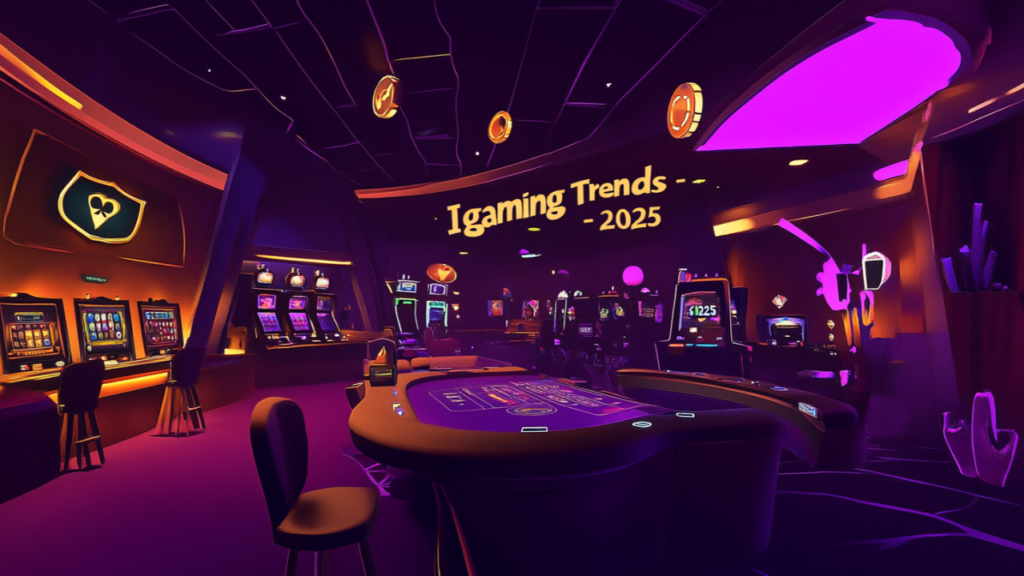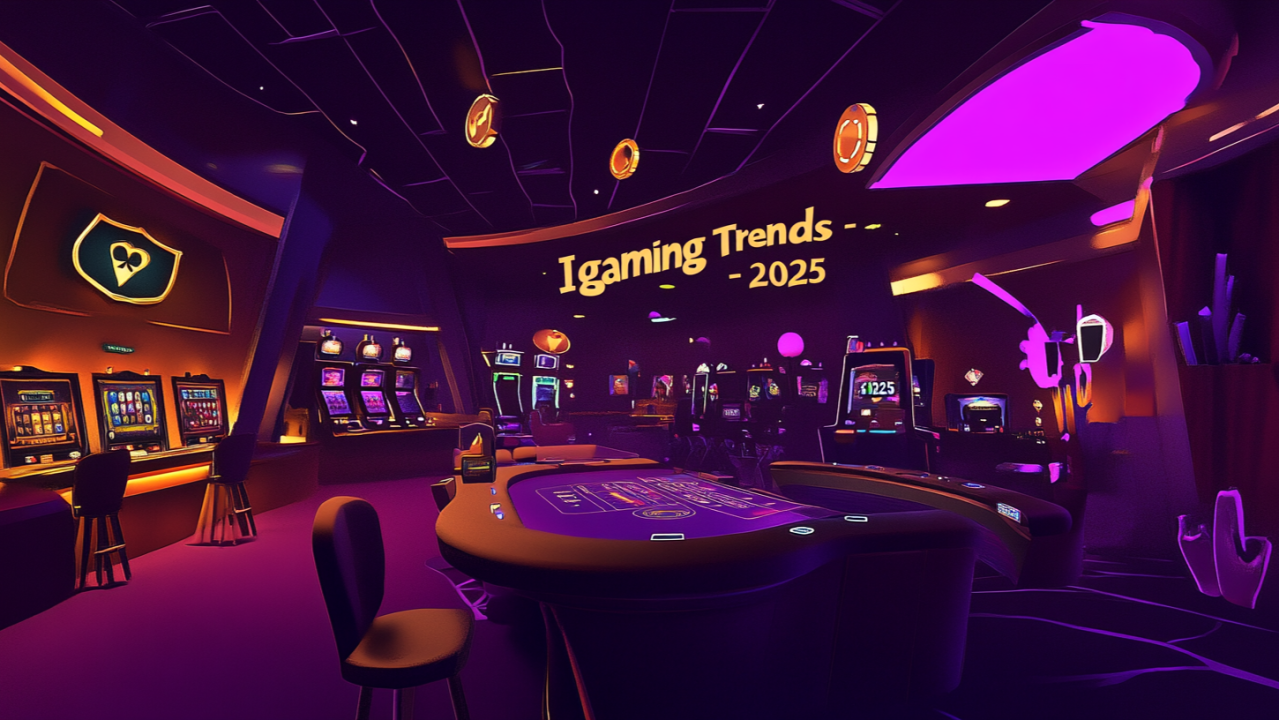Gambling, one of humanity’s oldest pastimes, has undergone a radical transformation over the last few decades. The shift from brick-and-mortar casinos to online platforms has been a game-changer, with digital technology reshaping how people play and interact with betting and gaming. As we move toward 2025 and beyond, the gambling industry is poised for further innovation. Emerging trends, technological advancements, and evolving consumer preferences will define the next chapter of this multi-billion-dollar industry. Here are some key trends that will shape the future of gambling.
Contents
- 1 Top 10 Trends for 2025 and Beyond
- 1.0.1 1. The Rise of Virtual Reality (VR) and Augmented Reality (AR)
- 1.0.2 2. Blockchain and Cryptocurrency Integration
- 1.0.3 3. Artificial Intelligence (AI) for Personalization and Security
- 1.0.4 4. Esports Betting: A Growing Market
- 1.0.5 5. Mobile-First Gambling Experiences
- 1.0.6 6. The Role of 5G in Gambling
- 1.0.7 7. Social Gambling and Community Features
- 1.0.8 8. Regulation and Responsible Gambling
- 1.0.9 9. Gamification of Online Gambling
- 1.0.10 10. Cross-Platform Integration
- 1.1 Conclusion
Top 10 Trends for 2025 and Beyond 
1. The Rise of Virtual Reality (VR) and Augmented Reality (AR)
Virtual Reality (VR) and Augmented Reality (AR) are at the forefront of innovation in online gambling. These technologies are set to revolutionize the user experience, making online platforms feel more immersive and interactive. Instead of simply placing bets on a screen, players can virtually walk into a casino, sit at a poker table, or spin a roulette wheel in real-time.
AR, on the other hand, enhances existing environments, allowing users to overlay casino games onto their surroundings. This blend of the physical and virtual world offers an exciting and engaging way to gamble from the comfort of one’s home. With the costs of VR and AR devices steadily decreasing, these technologies will likely become mainstream in the gambling sector by 2025.
2. Blockchain and Cryptocurrency Integration
Blockchain technology is becoming increasingly relevant in the gambling industry. Its decentralized and transparent nature ensures fair play, secure transactions, and instant payouts. Cryptocurrencies like Bitcoin and Ethereum are also gaining traction as preferred payment methods on gambling platforms.
By 2025, more gambling operators will adopt blockchain to enhance trust and attract tech-savvy players. Players value privacy and security, and cryptocurrency transactions offer anonymity that traditional payment methods often lack. This trend is especially significant for platforms like Saffronexch, which cater to a growing audience seeking seamless and secure betting experiences.
3. Artificial Intelligence (AI) for Personalization and Security
Artificial Intelligence (AI) is transforming industries across the board, and gambling is no exception. In online betting, AI can analyze user behavior to offer personalized game recommendations, bonuses, and tailored experiences. This level of customization not only enhances user satisfaction but also increases player retention.
AI also plays a crucial role in ensuring fair play and fraud prevention. By monitoring transactions and gameplay patterns, AI can detect unusual activity and safeguard platforms and players from potential threats. For platforms like Saffron Exchange, integrating AI could enhance user trust and create a safer gaming environment.
You Can Also Read, Steps to Register and Login at Fantasy Sports Games
4. Esports Betting: A Growing Market
The popularity of esports has skyrocketed in recent years, with millions of fans tuning in to watch professional gamers compete in tournaments. This surge in interest has opened a lucrative market for esports betting. By 2025, esports betting is expected to rival traditional sports betting in terms of revenue and user engagement.
Players can bet on their favorite teams or individuals in games like League of Legends, Counter-Strike, and Fortnite. Platforms are developing specific features to cater to this audience, such as live-streaming, in-play betting, and esports-specific bonuses.
You Might also Like, The Psychology of Gambling: Why People Bet
5. Mobile-First Gambling Experiences
As smartphones become more powerful and accessible, the demand for mobile-first gambling experiences continues to grow. Mobile gambling apps are designed to provide seamless, user-friendly interfaces with quick loading times and intuitive navigation.
By 2025, mobile gambling will likely dominate the market, with platforms prioritizing apps over desktop versions. Innovations such as one-click payments, fingerprint authentication, and geolocation services will enhance mobile gaming experiences. The convenience of gambling on the go is reshaping how players engage with their favorite games.
6. The Role of 5G in Gambling
The rollout of 5G networks is a game-changer for online gambling. With faster internet speeds and lower latency, players can enjoy real-time gaming experiences without interruptions. This is particularly significant for live dealer games and multiplayer formats, where timing is crucial.
5G also supports high-quality VR and AR experiences, making these technologies more accessible to the masses. As 5G becomes more widespread by 2025, gambling platforms will be able to offer cutting-edge features that were previously unattainable.
7. Social Gambling and Community Features
Social gambling is gaining popularity as players seek more interactive and communal experiences. By integrating chat rooms, multiplayer games, and social media features, platforms can create a sense of community among users.
Gamification—the incorporation of game-like elements such as leaderboards, achievements, and challenges—is another way to engage players. These features not only make gambling more enjoyable but also encourage longer playtimes and increased spending.
8. Regulation and Responsible Gambling
As the industry evolves, so too does the focus on responsible gambling. Regulators worldwide are pushing for stricter guidelines to protect players, particularly those at risk of addiction. By 2025, expect more platforms to adopt self-exclusion tools, deposit limits, and other measures to promote healthy gambling habits.
Governments will likely implement more comprehensive regulations to ensure fair play, data protection, and ethical practices. These changes will create a safer environment for players and help build trust in the industry.
9. Gamification of Online Gambling
Gamification is an emerging trend that adds an element of fun and competition to online gambling. Players earn rewards, complete missions, and participate in tournaments, making the experience more engaging.
By 2025, gamification will become a standard feature on most gambling platforms. These elements can attract a younger demographic, who are accustomed to gamified experiences in other aspects of digital life.
10. Cross-Platform Integration
With players using multiple devices to gamble, cross-platform integration is becoming increasingly important. Platforms are working to ensure seamless transitions between desktop, mobile, and other devices. By 2025, this will be a standard expectation, allowing players to pick up where they left off, no matter the device.
Conclusion
The future of gambling is bright, driven by innovation and a commitment to enhancing user experiences. From immersive VR and AR environments to secure blockchain transactions and AI-driven personalization, the industry is evolving to meet the needs of a tech-savvy audience.
Platforms like Saffronexch and Saffron Exchange are well-positioned to capitalize on these trends, offering cutting-edge features and a secure environment for players to enjoy their favorite games. As technology continues to advance and regulations evolve, the gambling industry will undoubtedly see significant growth and transformation in the years to come. By embracing these trends, operators can ensure they remain competitive in a dynamic and ever-changing market.
